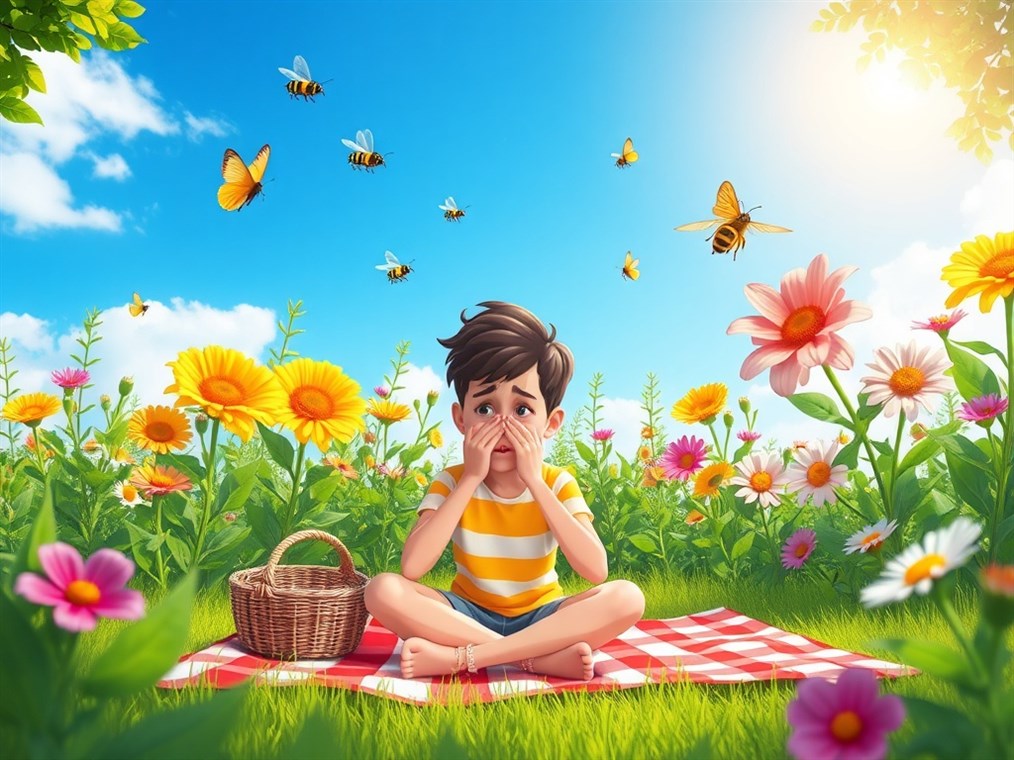Why Are My Allergies So Bad in the Summer?
Ah, summer. Sunshine, barbecues, and… relentless allergies? If you’re like me, you probably spend half the summer battling a runny nose and itchy eyes. It’s a real buzzkill, isn’t it? But why are allergies so much worse when the weather warms up? Turns out, there’s a whole host of reasons.
Pollen’s the biggie, of course. You might think of spring as pollen season, and you’d be right to some extent, but summer brings its own onslaught. While trees are the main culprits in spring, summer is when grasses and weeds really kick things into high gear. Grass pollen is pretty much everywhere, making it a common allergen for many. And then there’s ragweed. Oh, ragweed. This stuff is the bane of my existence from late summer into fall. Seriously, a single ragweed plant can pump out a billion pollen grains. A billion! And because they’re so light, they can travel for miles and miles, so even if you don’t have ragweed growing right next door, you can still get hit hard.
But pollen isn’t the only troublemaker. Mold also loves the summer months. Think about it: warm weather, lots of humidity… it’s basically a mold paradise. You’ll find it growing on rotting wood, in piles of leaves, even in your compost bin. And if you’ve got damp spots in your bathroom or basement? Mold city. All that mold releases spores into the air, and those spores can set off your allergies.
Speaking of humidity, it’s a bit of a double-edged sword when it comes to allergies. On the one hand, it helps mold and dust mites thrive. Dust mites? Ugh, don’t even get me started. They love humidity, and they multiply like crazy in your bedding and carpets. On the other hand, really low humidity can dry out your nasal passages, making them more vulnerable to irritation. Ideally, you want your indoor humidity somewhere between 30 and 50 percent.
And let’s not forget about insect stings. Bees, wasps, all those stinging critters are way more active in the summer. Most of us just get a little pain and swelling from a sting, but if you’re seriously allergic, it can be life-threatening.
Then there’s air pollution. You know those hazy summer days? That’s often ozone and smog, and they can really make allergies and asthma worse. The pollutants irritate your airways, making you even more sensitive to allergens.
Ever get a tingly mouth after eating certain fruits or veggies? It could be Pollen Food Allergy Syndrome, or PFAS. Basically, some fruits and vegetables have proteins that are similar to pollen, so your body gets confused and reacts.
So, what can you do to survive the summer allergy season? Here are a few tips that have helped me:
- Keep an eye on pollen and mold counts. Knowing what’s in the air helps you plan your day.
- Limit your time outdoors when pollen counts are high, especially in the morning and on windy days.
- Keep your windows closed to keep allergens out of your house.
- Use air conditioning with a HEPA filter to clean the air.
- Shower and change clothes after being outside to wash off pollen.
- Wash your bedding regularly to get rid of dust mites and other allergens.
- Use a dehumidifier to keep indoor humidity down.
- Wear a mask when you’re gardening or doing other outdoor activities.
- Start taking allergy meds early, before the season really gets going.
- Try a nasal rinse to clear out your sinuses.
Look, summer allergies can be a real drag. But by understanding what’s triggering your symptoms and taking some simple steps to manage them, you can actually enjoy the season. And if your allergies are really bad, don’t hesitate to see an allergist. They can help you figure out exactly what you’re allergic to and find the right treatment plan for you. Here’s to breathing easy this summer!

